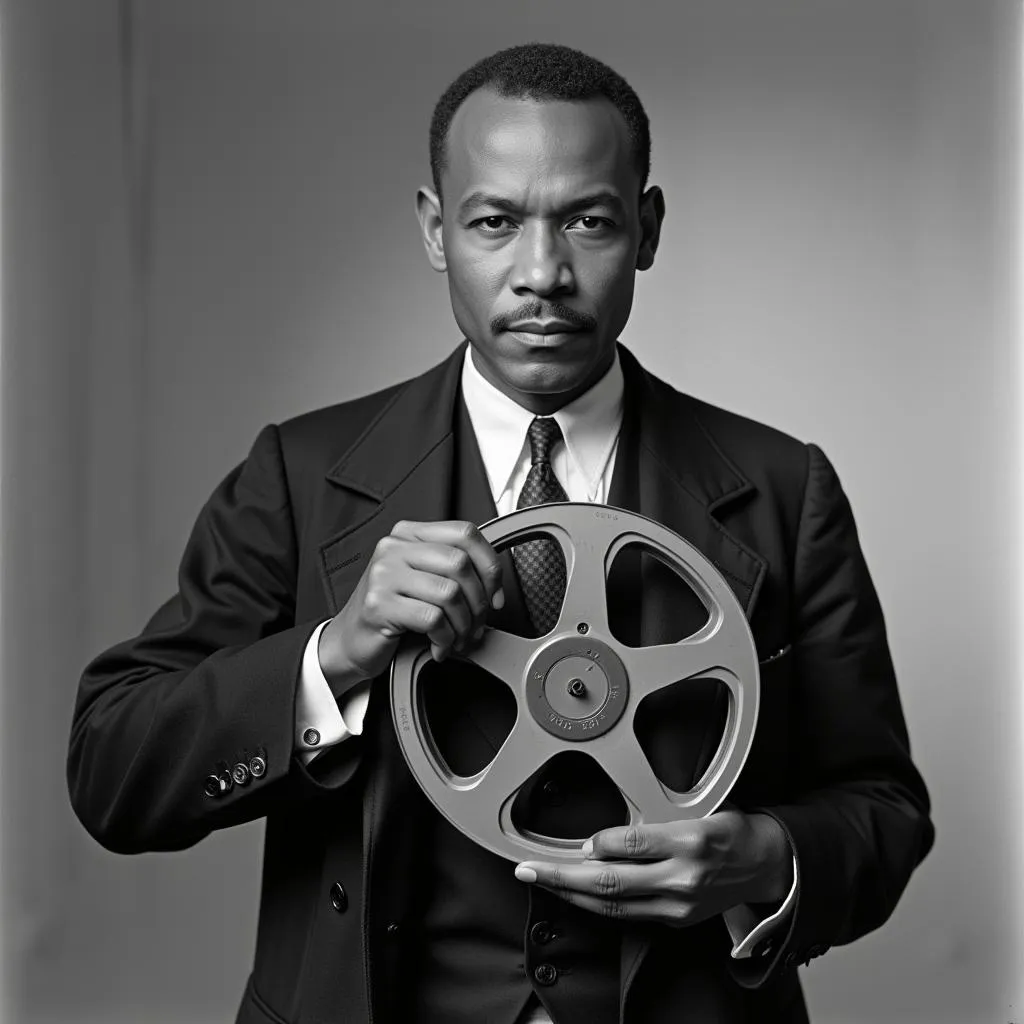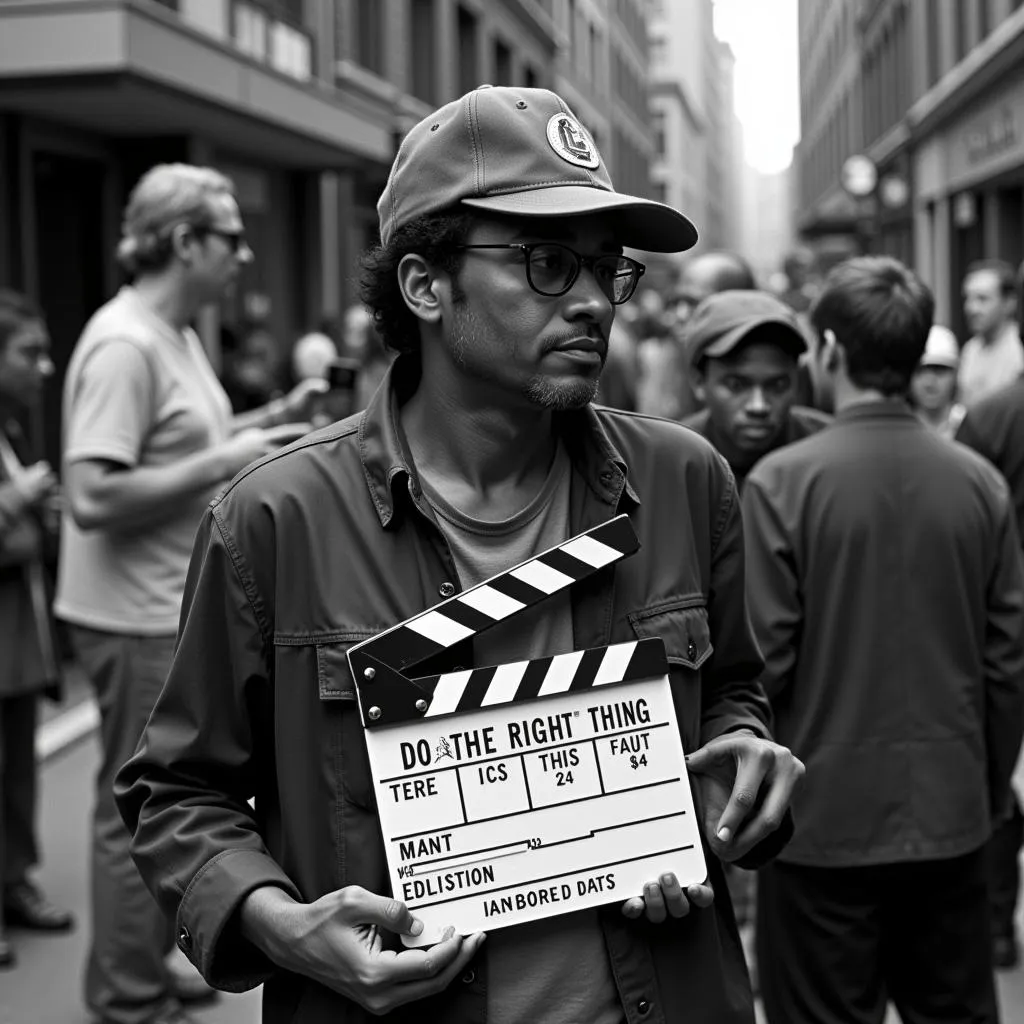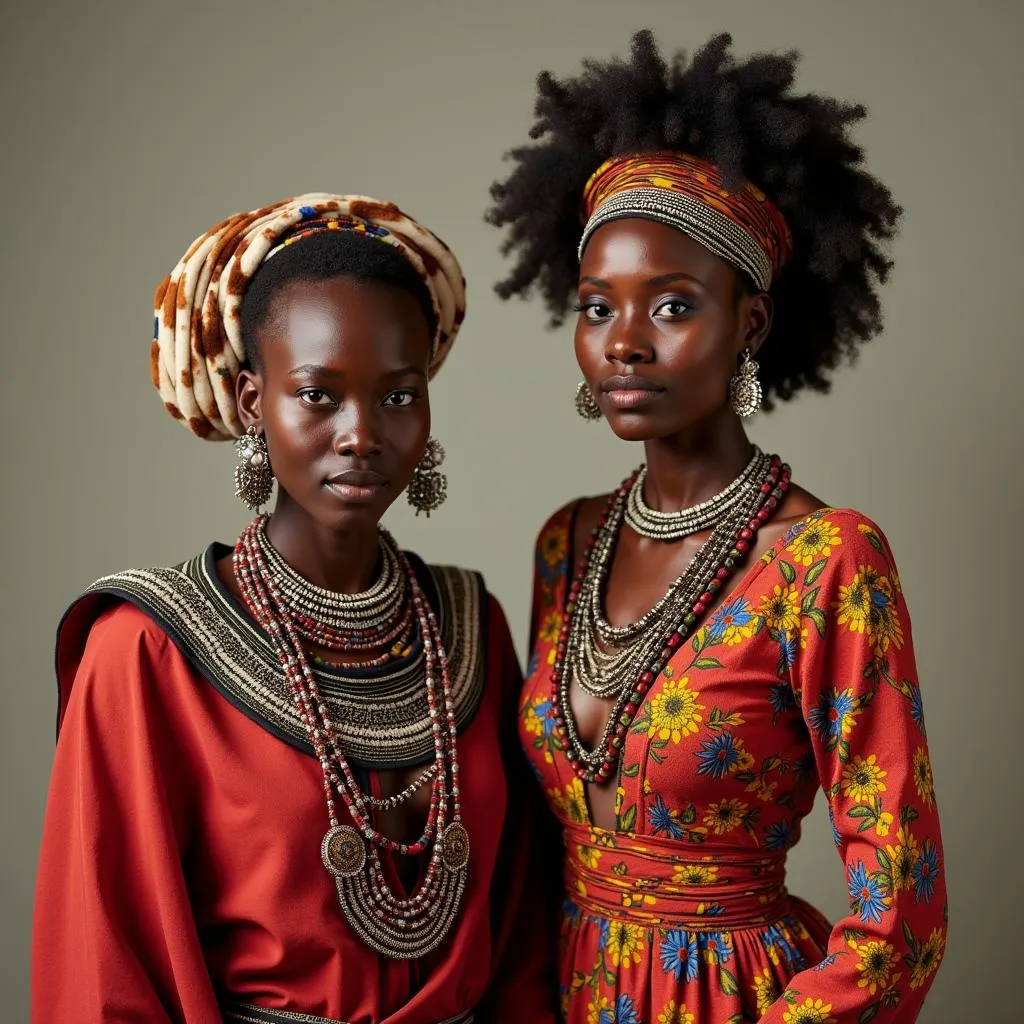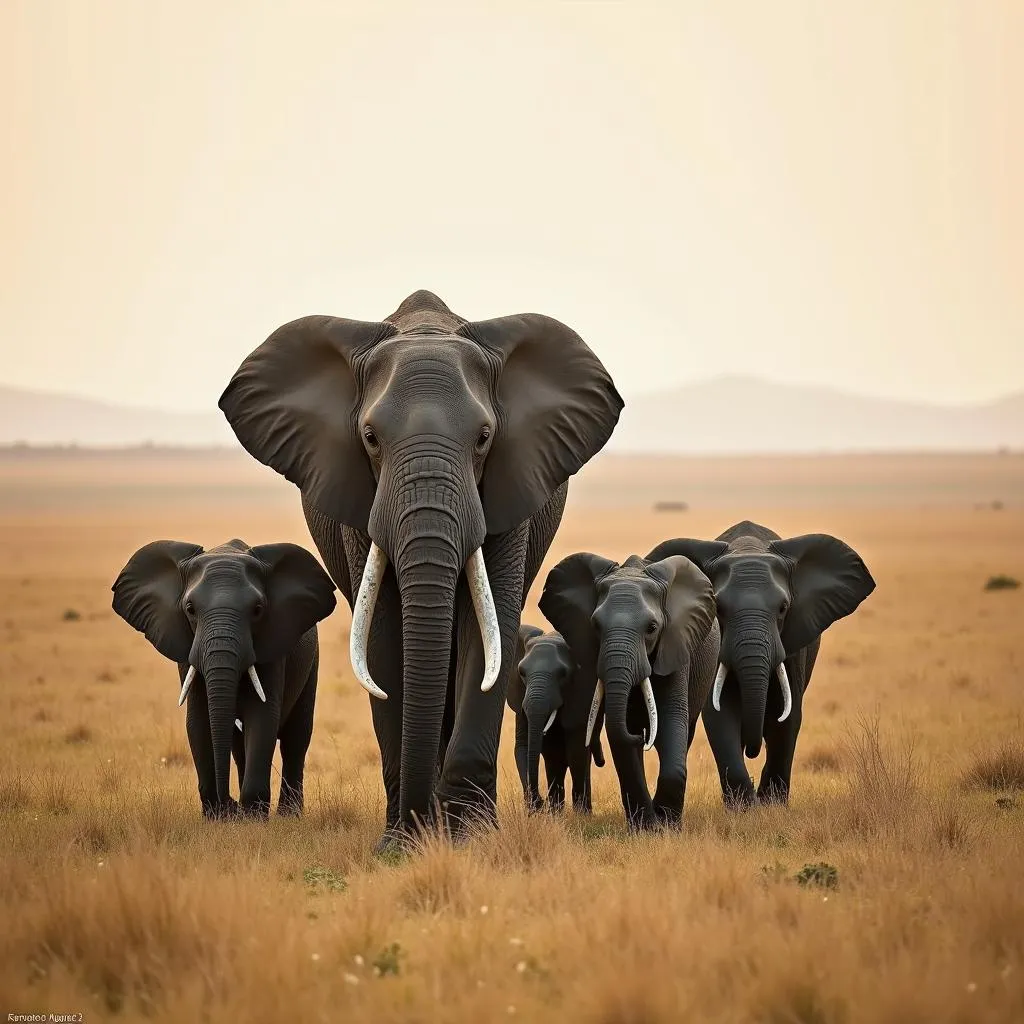A Cinematic Journey: Exploring African American Cinema History
African American Cinema History is a rich tapestry woven with threads of resilience, creativity, and the enduring pursuit of representation. From the early 20th century to the present day, African American filmmakers and actors have overcome significant obstacles to shape the landscape of American cinema, telling stories that reflect their unique experiences, challenges, and triumphs.
Breaking Barriers: The Genesis of African American Filmmaking
The beginnings of African American cinema were marked by a struggle against prevalent racist stereotypes in mainstream media. Early films often relegated Black actors to demeaning roles, perpetuating harmful caricatures. However, pioneering filmmakers emerged, determined to challenge these misrepresentations and offer authentic portrayals of Black life.
One such pioneer was Oscar Micheaux, often hailed as the “father of African American cinema.” In the 1920s, Micheaux began producing, directing, and distributing his films, tackling themes of racial prejudice, classism, and social justice. His work, though often produced with limited resources, provided a powerful counter-narrative to the prevailing stereotypes of the time, paving the way for future generations of Black filmmakers.
 Oscar Micheaux: Pioneering Figure in African American Cinema
Oscar Micheaux: Pioneering Figure in African American Cinema
The Rise of Blaxploitation and the Quest for Black Identity
The 1970s witnessed the emergence of Blaxploitation films, a genre that offered Black audiences heroes and narratives that resonated with their experiences. While often criticized for their exploitation themes and violence, Blaxploitation films provided opportunities for Black actors and directors in an industry that had long marginalized them.
Films like “Shaft” and “Super Fly” became cultural phenomena, reflecting the frustrations and aspirations of urban Black communities. They also showcased a new wave of Black talent, both in front of and behind the camera, including actors like Pam Grier and Richard Roundtree, who became iconic figures.
A New Wave: Independent Cinema and the Black New Wave
The late 20th century saw a surge in independent Black filmmaking, driven by a desire to explore more nuanced and diverse stories beyond the constraints of mainstream Hollywood. This period, often referred to as the Black New Wave, gave rise to filmmakers like Spike Lee, John Singleton, and Julie Dash, who brought fresh perspectives and a raw honesty to their work.
Spike Lee’s “Do the Right Thing” (1989), a powerful commentary on racial tensions in Brooklyn, became a landmark film, sparking conversations about race and inequality in America. Similarly, John Singleton’s “Boyz n the Hood” (1991) offered a raw and unflinching look at the realities of growing up in South Central Los Angeles, earning Singleton an Oscar nomination for Best Director, making him the first African American and the youngest person to receive the honor.
 Spike Lee Directing "Do the Right Thing"
Spike Lee Directing "Do the Right Thing"
The Contemporary Landscape: Diversity, Inclusion, and the Power of Storytelling
The 21st century has witnessed a growing recognition of the importance of diversity and inclusion in Hollywood. African American filmmakers and actors are achieving unprecedented success, breaking box office records, and garnering critical acclaim.
Films like “Black Panther” (2018), directed by Ryan Coogler, and “Get Out” (2017), directed by Jordan Peele, have not only captivated audiences worldwide but also sparked important conversations about race, identity, and representation in society.
This new generation of filmmakers continues to push boundaries, challenging stereotypes, and expanding the possibilities of storytelling, ensuring that African American cinema remains a vibrant and vital force in shaping the future of film.
FAQs: Delving Deeper into African American Cinema History
What were some of the challenges faced by early African American filmmakers?
Early African American filmmakers faced numerous obstacles, including limited access to funding, distribution networks controlled by white-owned companies, and widespread racial prejudice within the industry. They also contended with the negative portrayals of Black people in mainstream media, striving to counter these stereotypes with their work.
How did Blaxploitation films impact the portrayal of Black characters in cinema?
Blaxploitation films, while controversial, provided opportunities for Black actors to portray complex and often heroic characters, a departure from the stereotypical roles they were often relegated to in mainstream cinema. These films, though often characterized by violence and exploitation themes, gave Black audiences heroes they could identify with and provided a platform for Black voices and perspectives.
Exploring Further: A Continued Journey Through Film
From the pioneering work of Oscar Micheaux to the groundbreaking achievements of contemporary filmmakers, African American cinema history is a testament to the power of storytelling in challenging perceptions and shaping cultural narratives. This exploration offers a glimpse into a rich and multifaceted history, encouraging further exploration and appreciation for the significant contributions of African American artists to the world of film.
Remember to explore our other articles on African cinema, including:
- 7 African Actresses making waves internationally.
- Insights into the compelling narratives of African American Netflix series.
For any inquiries or assistance, our dedicated team is available 24/7. Contact us at +255768904061, email kaka.mag@gmail.com, or visit us at Mbarali DC Mawindi, Kangaga, Tanzania.


